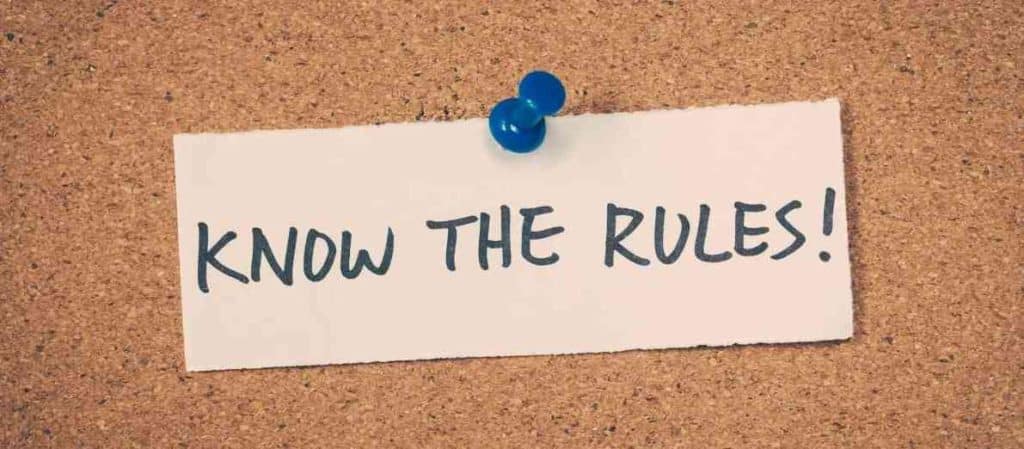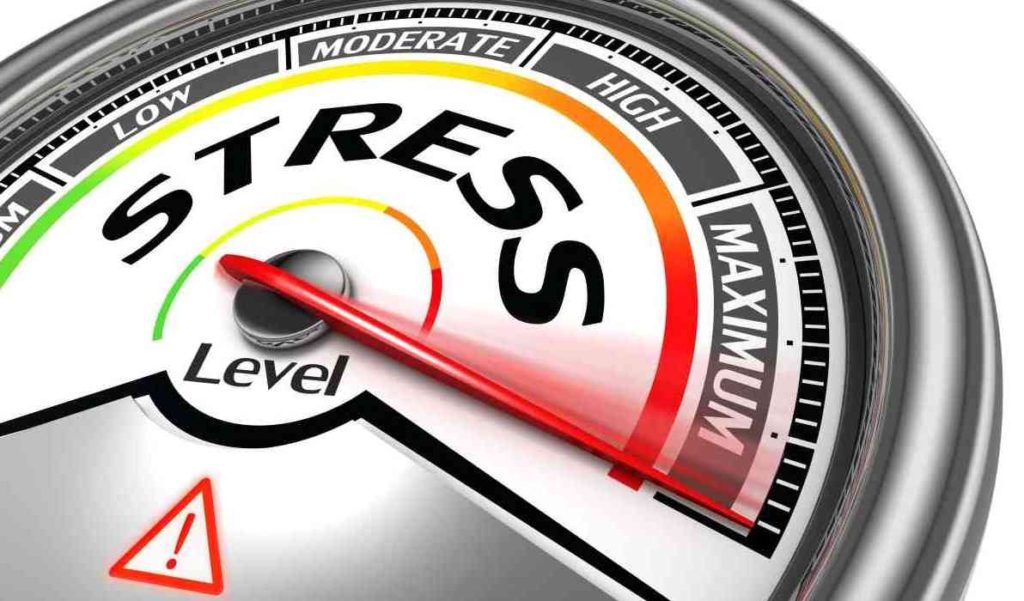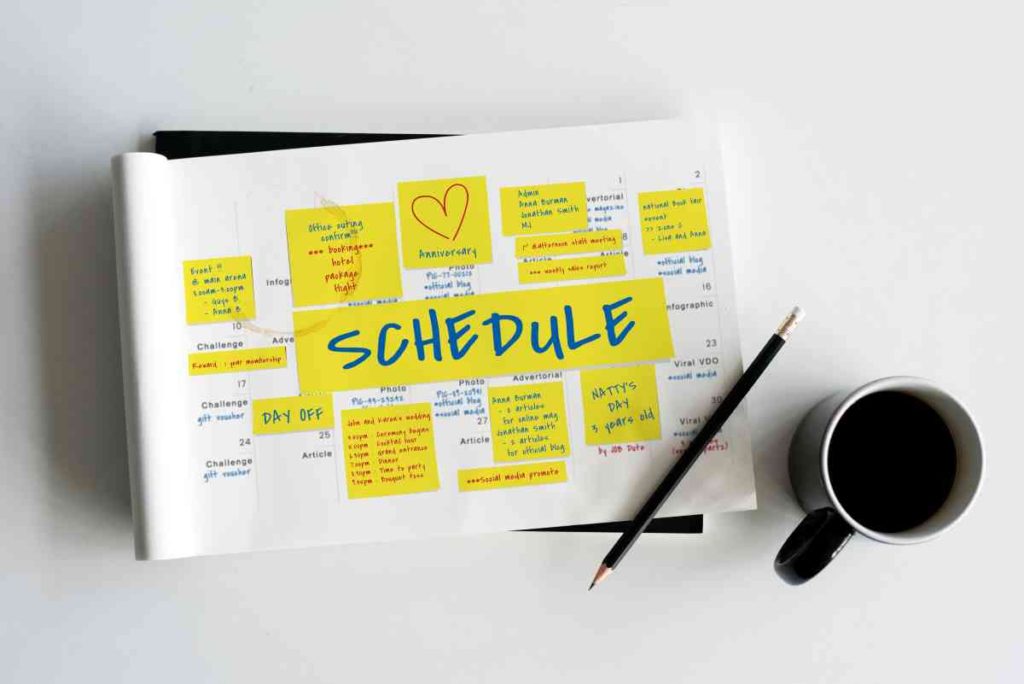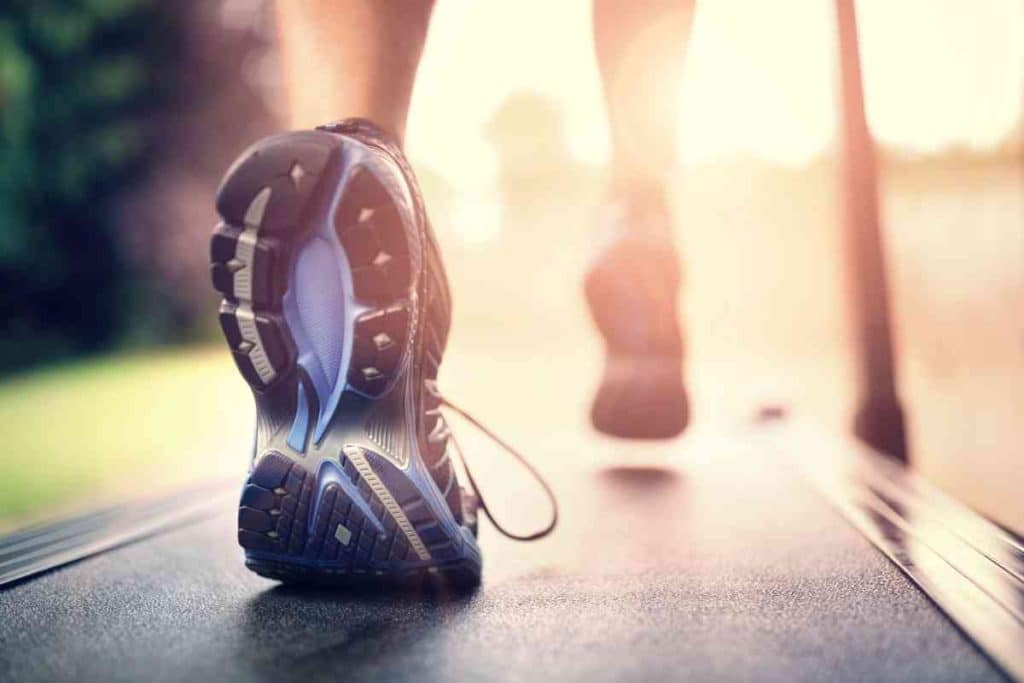While there are a variety of ways in which PT students can experience stress, the bottom line is that stress is stress. Our bodies can’t exactly tell one type of stress from another, and when it continuously goes on for too long, things can unravel and downward spiral rather quickly.
Mental health (also referred to as emotional health) just one of the multiple domains of our health (the others being physical health, social health, intellectual health and spiritual health) and it’s no different from any of these other domains in that it must be regularly looked after and actively pursued if we wish to keep it strong and make it stronger.
PT school can be stressful for a variety of reasons and while there are numerous ways to keep your mental health high, the tips within this article will help lay a foundation for steps you can take to reduce your stress levels while protecting and strengthening your mental health.
The quick overview of how you can manage and reduce your stress in PT school
Tip 1: Follow the three central rules for staying mentally and physically healthy (rules listed below)
Tip2: Identify the areas of your life that you perceive stress to be coming from along with the individual stressors
Tip 3: Develop a regimented schedule and stick to it (for both your studies and leisure time)
Tip 4: Work on your sleep hygiene
Tip 5: Keep physically active w/ physical activities that you enjoy
Tip 6: Make use of counseling services provided by your academic institution
These tips are discussed in further detail within this article, so be sure to keep reading!
Tip 1: Follow the three rules to follow for looking after your mental & physical health

There’s an old tenet you might have learned way back in the day when it comes to the three simple rules that people should follow for staying healthy. If you haven’t ever come across it, I highly suggest that you make this a central component to your own personal life as well as when you begin treating patients in the clinic.
The three rules are (in specific order):
Rule 1: Prevention is better than ANY cure
Rule 2: Never let a minor issue become a major one
Rule 3: When in doubt, seek professional help
Keep these rules at the forefront of your studies and for all your days within PT school.
As a healthcare practitioner, you’ll need to be acutely aware of these rules, not just for your own self, but for those you will be treating one day. But within this article, we’re focusing strictly on you.
These three rules should make intuitive sense to you, so while I won’t elaborate on each one, I am hoping that the conceptual picture of how these rules relate to reducing stress in PT school is pretty clear.
The best time to start reducing stress and working on your mental health is before you are having any sort of issues arise.The second-best time is the moment that any issues begin to arise.
As a future physical therapist, you understand that the best way to recover from an injury is to prevent it from occurring in the first place. Therefore, why not take this same approach with your mental health and stress levels?
Take time to allow yourself to become informed to how life is unfolding around you. Tune into yourself and maybe do a subjective evaluation on yourself. Do you seem to have good mental mobility at this moment, or is stress acting like some nasty scar tissue that’s preventing you from having the emotional freedom you are perhaps in need of?
Taking time to yourself to identify potential or current sources of stress will allow you to prevent stress from occurring or building as you make your way through PT school. And should you need to seek professional help (rule number 3) (something which I have done – and am a major advocate for), check out tip number 6 in this article.
The bottom line: These three rules are the lifeblood for ensuring that you look after yourself both physically and mentally (and even spiritually) when moving not just through PT school, but life in general. While it’s important as a future PT to preach these rules to your patients, you yourself need to make sure that you walk the talk. No better time to start doing so than right now. In terms of stress, doing so could save your from catastrophe and total mental collapse.
Tip 2: Identify the areas you perceive stress to be coming from along with the individual stressors

If you’ve taken some time to yourself and you DO feel stress creeping into your life, hone in on it and try your best to determine where the stress is coming from. Is it from the academic material? A feeling of not enough time in the day? Financial concerns? Family or relationship-type stress? Take some time to explore this. Stress that is external to PT school can bleed into PT school itself, and vice versa, so take inventory of where your stressors are coming from.
You need to identify where the stress is originating from so that you can better attack it and address it.
Once you know where the stress is originating, ask yourself if there’s a specific stressor within that realm.
Taking time to identify all that you can about your perception of stress is analogous to taking a subjective and objective assessment for a patient on their initial examination.
The more you can figure out about what’s going on, how it occurred and what’s been affected, the better chance you’ll stand at correctly identifying and treating the issue.
The bottom line: If you know the enemy, you can defeat the enemy. Think of this as taking a subjective and objective examination on a patient that you’re treating in the clinic as a PT. Your subjective and objective findings give you the information you need to begin rectifying the problem. It’s the same process with figuring out what’s going on with your current situation regarding stress. And if you can’t make progress by yourself, reach out to someone who can help you (see tip number 6).
Tip 3: Develop a regimented schedule and stick to it (for both your studies and leisure time)

Regardless of whether or not you feel that your stress is coming from how busy school or life in general is keeping you, a regimented schedule can help ensure that you’re not making school or life any harder on yourself than it needs to be.
A vast majority of PT students feel that the demands of their PT coursework keep them extremely busy throughout each semester. Staying caught up on their studies and assignments can therefore prove to be an ongoing and energy-draining challenge. Needless to say, if you’re not good with your time management, you can find yourself struggling to keep you head above the water.
There’s two key reasons why developing a regimented schedule can be a critical move for you to make when it comes to reducing stress:
Reason one: A schedule will help ensure you stay caught up on your studies and assignments by devoting appropriately needed time each week to the material.When you mismanage your study time, stress can pile up at a rapid rate as you race to complete assignments on time or cram all night before an exam.
Reason two: A schedule will help you take time out of your studies to ensure you give yourself time for your leisure activities. Sometimes students get so caught up in their studies that they forego leisure activities. Don’t make this mistake.
In other words, a properly designed and implemented daily and weekly schedule will help ensure you strike a healthy balance between both of these necessities.
Don’t make life harder on yourself by mismanaging your study time and don’t make life harder on yourself by not billing in appropriate recovery time from your efforts.
If you continually mismanage your study time by slacking off and foregoing the hard work that you need to be putting into your program, you’re just only shooting yourself in the foot. Ironically enough, if ALL you do is study and never give yourself some leisure time, you’re likely just shooting yourself in the other foot.
Think of it this way: Athlete’s who want to be successful at their sport know that they stand the best chance of becoming the best they can be when they put in the required time (consisting of high levels of physical effort) in their training facility while also being calculated and intentional with their recovery outside of the gym.
An athlete looking to perform at highly competitive levels knows that they won’t stand a chance in their sport if they don’t put in some serious time into their physical training. They also know that their bodies will be worse off if they don’t bill in appropriate amounts of recovery. It’s a specific and intentional balance that they must strike.
You as a student within your PT program are no different, aside from the fact we’re talking about mental strength and endurance rather than physical strength and endurance.
The bottom line: Some people do just fine without any sort of schedule. To each their own. But if you feel any sort of stress arising from how busy school is keeping you, adopting a weekly schedule that keeps you on track with study time AND leisure time is a surefire way to knock down any sort of stress that is arising from the demands of PT school.
Tip 4: Work on your sleep hygiene

I don’t know when it became a badge of honour to talk about how little sleep we get each night before heading off to school or work to grind through another day, but this is a horrendously flawed mentality.
The research is starting to paint a rather clear picture on the detriments of chronic sleep deprivation throughout all aspects of our health and cognitive functioning.
Sleep is important and you need to budget time for it accordingly. But as with nearly everything else in life, it’s not just about quantity, it’s also about quality.
Sleep hygiene is a term that refers to our overall habits and actions we adopt when it comes to all aspects of our sleep lives. Like anything else, developing healthy sleep habits (which includes pre-bedtime routines in addition to setting up an appropriate sleeping environment) takes practice.
It can be different from one individual to the next when it comes to finding and implementing the best strategies that work for them. This means that it can take some time along with some trial and error, but it’ll be well worth it. Study hard, sleep hard.
While the specifics of sleep hygiene strategies are beyond the scope of this article, the basics begin with actions such as going to bed at a consistent time each night, sleeping in a dark room and avoiding electronic screens shortly before bedtime.
If you’d like some tips on sleep hygiene, check out this article by Harvard: http://healthysleep.med.harvard.edu/healthy/getting/overcoming/tips
If you’re wanting to get more information on sleep hygiene in general, be sure to check out this article by the Sleep Foundation: https://www.sleepfoundation.org/articles/sleep-hygiene
The bottom line: Bragging about how little sleep you get is pretty dumb. Sleep is pretty critical when it comes to keeping your mind and body operating to the best of its abilities. Take some time to explore the world of sleep hygiene and ask yourself how you can perhaps improve your sleep hygiene habits. Everyone has to sleep, so you might as well get the most out of it.
Tip 5: Keep physically active with physical activities and pursuits that you enjoy

With your current level of knowledge towards human health and wellness that you have at this point in your PT journey, it should come as no surprise to you that regular physical activity is one of the best possible actions you can take to improve your emotional health and keep it in check.
Students often make the mistake of sacrificing regular physical activity for gaining a bit of extra study time. While there are times where this will happen (it happens to everyone at times), it’s certainly an issue if you have to sacrifice your physical activity time because you wasted time earlier on by not being regimented with your study time. It’s also an issue if you are repeatedly putting off physical activities week after week after week.
As a healthcare practitioner, you need to care about your own health.
The pursuit of health and wellness is one that needs to be continual and stay front and center within your life. You’re no good to your patients when you’re burnt out, run into the ground, mentally overwhelmed and unable to take care of yourself. Not only do we need to lead by example, but we also need to be well enough to give our best possible efforts to those whom we treat.
The bottom line: Find ways to get your physical pursuits and physical activities in on a regular basis each week. Yoga, running, lifting weights, ultimate frisbee, and so on. Humans are made for movement, and you as a PT know this. Movement is not only physical medicine, but mental medicine as well.
Tip 6: Make use of counseling services provided by your academic institution

If you feel that your stress is becoming problematic and aren’t sure of the next best step(s) to take, setting up some sessions with a mental health councillor at your academic institution would be a very wise move to make.
You know how we as PT’s always advocate for the amazing ways in which physical therapy can help a patient’s body? Mental health councillors do the same thing, but for your brain. Think of it as PT for your brain. Trust me, it can do absolute wonders.
Your school will have resources and counselors in place that you can access at no charge if you need someone to talk to with how you’re feeling or what you’re currently experiencing. Getting weekly, biweekly, monthly, etc. sessions in with a mental health counselor on campus without having to worry about racking up a bill for it is an AMAZING resource that you shouldn’t let go to waste if you’re dealing with chronic stress.
As a personal side note, my financial stress along with family circumstances that were occurring while I was in PT school prompted me to reach out and talk with a counselor for a number of sessions and they were extremely beneficial for me. I can’t state enough how good it felt just to talk with someone who listened and gave me insight that I needed.
Ask for help not because you are weak, but because you want to remain strong.
Speaking with a licensed mental health counselor is like physical therapy for your brain. Sometimes we get stuck in mental thought processes and beliefs that arise from what we’ve had to endure and experience. I liken it to a form of mental scar tissue, if you will. Scar tissue is the body’s attempt at healing its tissues after nasty injuries, and can perhaps be more problematic than helpful at times.
Thought processes and beliefs that arise from stress and negative experiences can be the same way, in a sense. A mental health counselor can help restore the mental mobility that you’ve lost with prolonged stress and troubles.
The bottom line: You’re a human being. Human beings need to reach out to get help from others throughout their lives. People will reach out to you when they need therapy for their physical health. You’re putting yourself through a TON of stress and challenge as you make your way through PT school, so take advantage of what your institution has for helping you get some therapy for your emotional health.
Concluding remarks
No one is immune to stress. Some will experience more of it than others while in PT school. While school itself can be stressful, external factors outside of school can create sources of stress that make school tougher to get through.
It’s therefore important to understand to the best of your abilities where your sources of stress are coming from and what these particular stressors are. If you know the enemy, you can defeat the enemy.
Creating an organized schedule that will help you be smart with your time-management can greatly cut down on perceived levels of stress. Staying physically active, ensuring you are optimizing your sleep habits and reaching out to professional counselors provided by your academic institution are all actions you would be wise to consider if stress (academic or external) is becoming an ongoing issue for you.
Remember, we all experience stress. PT school is no picnic for the vast majority of its students. You’re human – if school doesn’t stress you out, something else in life will. The key is to know this and have the appropriate knowledge and steps in place to combat this enemy.
There are plenty of other great steps and actions you can take besides the tips listed within this article, so keep exploring your options for stress reduction and follow through on them.
If you’ve found this article helpful, please feel free to share it with anyone else you know who could benefit from its contents.
Grind hard. You got this.

Hi! I’m Jim Wittstrom, PT, DPT, CSCS, Pn1.
I am a physical therapist who is passionate about all things pertaining to strength & conditioning, human movement, injury prevention and rehabilitation. I created StrengthResurgence.com in order to help others become stronger and healthier. I also love helping aspiring students and therapists fulfill their dreams of becoming successful in school and within their clinical PT practice. Thanks for checking out my site!

